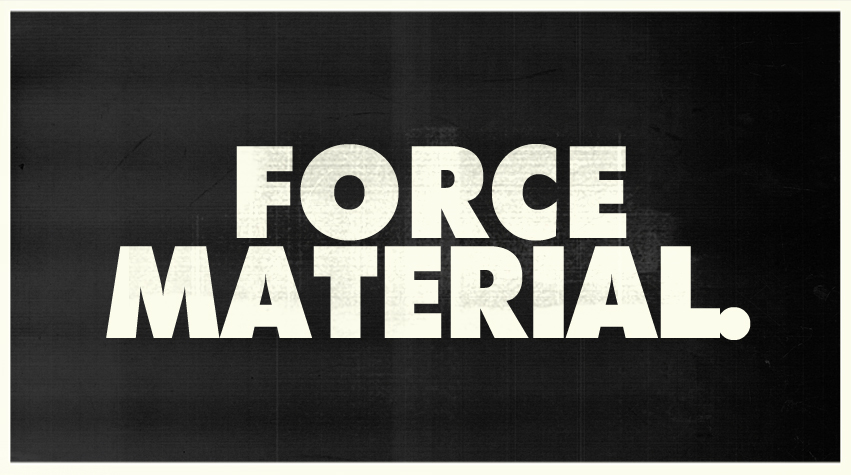Before you watch Rogue One, watch this excellent documentary about J Robert Oppenheimer
"In August of 1945, the city of Hiroshima was destroyed in about nine seconds by a single atomic bomb. The man responsible for building the bomb was a gentle and eloquent physicist named J Robert Oppenheimer. This is the story of Robert Oppenheimer and the atomic bomb."
That's the opening narration of The Day After Trinity, the exceptional 1980 documentary film you really should watch before you see Rogue One or read Catalyst: A Rogue One Novel.
It goes without saying that Rogue One isn't based on historical events, but, like so many Star Wars stories, it's certainly informed by our history.
In Rogue One, Galen Erso (Mads Mickelson) is a gentle, dashing and extraordinarily intelligent scientist, a brilliant man dedicated to harvesting a new form of energy for the good of the galaxy. He is, by any measure, a decent human being, and yet he is ultimately responsible for the most destructive weapon ever produced.
In other words, Galen Erso is Robert Oppenheimer in space.
The Day After Trinity tells the story of Robert Oppenheimer — the brilliant theoretical physicist remembered as "the father of the atomic bomb" — before, during and after the detonation of the first atomic bomb in the Trinity test in New Mexico.
Directed by Jon Else and written by David Webb Peoples, who would go on to write Blade Runner, Unforgiven and 12 Monkeys, the powerful documentary pulls absolutely no punches in its treatment of the atomic bomb's impact on Japan.
At the same time, however, it takes care never to demonise or shy away from the real human complexities of the people who built the bomb in the first place.
It casts no judgements, and instead simply tells the true story of how a man like Oppenheimer — a prodigy who dreamed of becoming a poet, an architect or a scientist; a bohemian leftist intellectual who devoured theoretical physics and 16th century French poetry in equal measure; a dashing and elegant ladies man who carried himself like a philosopher king — came to be responsible for the horrors in Hiroshima and Nagasaki.
Oppenheimer was worried about his Jewish relatives in Germany, but he was also worried that the Nazi wave would wash over the United States as well. He was convinced the Nazis, who were said to be working on their own atom bomb, would bring about the end of society as he knew it; he built the atomic bomb because he thought it was necessary to save Western civilisation. In the end, he was his own harshest critic.
Oppenheimer became an outspoken activist against nuclear power. The film's title is actually taken from an Oppenheimer quote — when Senator Robert Kennedy urged President Lyndon Johnson to take action to stop the spread of nuclear weapons, Oppenheimer said it was 20 years too late. "It should have been done," he said, "the day after Trinity."
Of course, it's not all about Oppenheimer. In order to make his bomb work, he had to recruit all manner of individuals to his Los Alamos Laboratory. He successfully convinced the best and brightest minds to uproot their families and follow him, without being able to tell them where they were going or what they were doing, and The Day After Trinity never makes the mistake of portraying these people as mad scientists.
They laugh, they party, they live, not oblivious to the impact of their work, but not completely consumed by it either. Of course, this is how it must have been, and in allowing them to be 'real' people, the film doesn't let them off the hook for their actions — instead, it puts all of us on the hook, because these scientists who built this weapon of unimaginable power are really no different to any of us.
Despite being an important, Academy Award-nominated documentary, DVD copies of The Day After Trinity are relatively scarce — but, at least at the time of writing, it can be viewed on YouTube.
"You may well ask why people with a kind heart and humanist feelings, why they would go and work on weapons of mass destruction," nuclear physicist Hans Bethe says at the outset of the film.
The Day After Trinity gives us a satisfying answer to that question. Rogue One will attempt to do the same.
Force Material is a podcast exploring the secrets and source material of Star Wars with hosts Rohan Williams and Baz McAlister. Listen and subscribe on iTunes, Spotify, iHeartRadio, TuneIn, Stitcher, PlayerFM and Castro; stay in touch with us on Facebook, Twitter and Instagram; and support the show by browsing our range of shirts, hoodies, kids apparel, mugs and more at TeePublic.




